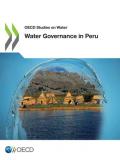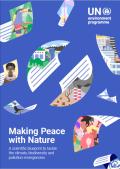
This report provides an analysis of water governance in the country and policy recommendations to: strengthen the multi sectoral approach to water; improve the use of economic instruments to protect and sustainably use water resources, its sources and related ecosystem services; and strengthen regulatory conditions to improved access to safe drinking water and sanitation in urban and rural areas.
This report provides an assessment of the status and impacts of marine pollution in the Caribbean and provides recommendations to enhance the region’s resilience as it steers toward the Blue Economy. It highlights the major socio-economic, health, and ecological impacts of marine pollution, and provides an assessment of the main marine pollutants in the region including marine and coastal litter, untreated wastewater, and agricultural run-off.
Rivers, lakes, and wetlands are among the most biodiverse places on earth. They cover less than 1 percent of the planet’s total surface, yet they’re home to almost a quarter of all vertebrate species – including over half of all the world’s fish species. Freshwater fishes play important roles within our ecosystems and serve as indicators of the health of those ecosystems. If freshwater ecosystems deteriorate to the point where they can’t support a healthy population of fish, they won’t be fit for humans either. Yet, in many senses, these are the world’s forgotten fishes.
This report is the Urban Land Institute (ULI)'s first-ever outlook on issues that are specific to environmental, social, and governance (ESG)—a broad and critically important topic that affects every aspect of our businesses, our industry, and communities.

The report communicates how climate change, biodiversity loss, and pollution can be tackled jointly within the framework of the Sustainable Development Goals. It serves to translate the current state of scientific knowledge into crisp, clear, and digestible facts-based messages that the world can relate to and follow up on.
